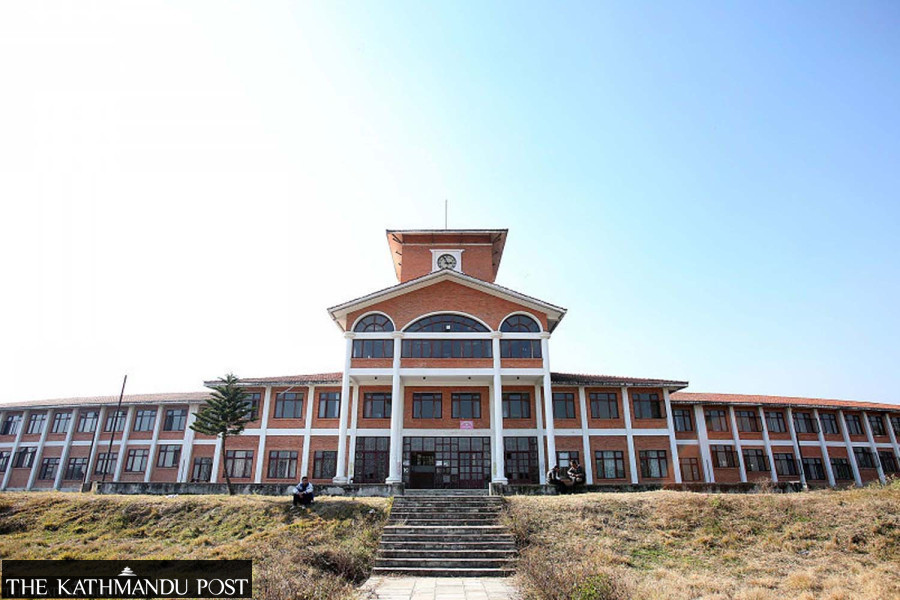National
TU bars teacher deputations by state bodies except federal Cabinet
Dozens of professors have been working in private and non-government entities including INGOs as full-time staff or consultants.
Binod Ghimire
The Tribhuvan University has decided not to allow its teachers to be deputed to government bodies except for those appointed by the federal Cabinet.
An executive council meeting of the university decided to this effect, with an increasing trend of its professors and associate professors taking appointments in the offices under different tiers of government.
Rule 22 of the Tribhuvan University Teacher and Staff Service Regulations, 1993, authorises the vice-chancellor to allow deputation up to three months and the council for a longer period.
The positions for the deputation of university teachers were limited until the country embraced federalism. Such positions proliferated as three tiers of governments came into existence.
“Those seeking leave for deputation have increased so much that we have started facing problems with teaching and learning,” Khadga KC, acting vice-chancellor, told the Post. “Therefore, we decided to impose restrictions. The university will allow deputation only in the cases approved by the Cabinet.”
The university’s teaching staff have been getting appointments in the National Planning Commission, Civil Service Commission and in different advisory positions. Following the federal government, the provincial governments have been appointing university teachers in similar positions. They serve for a few months to six years at maximum. The university has to make alternative arrangements to take care of the responsibilities of those deputed to different positions.
The council has also decided that the deputation period, except for appointees by the federal Cabinet, will not be counted for pension provisions. One who has worked for 20 years is eligible for pension, though 60 years is the maximum age for retirement. So far the university has been counting all types of deputation periods for pension provision.
In yet another decision, the university council, reversing its previous decision, has decided not to count the period of unpaid leave for calculating the pension. “The council has corrected several malpractices prevailing for years for the university’s benefit,” said KC.
Rule 32 of the regulations has provisions for unpaid leave which states that permanent teachers or staff, who have served for five years, can submit an application with valid reasons to request such leave. If the reason is deemed appropriate, the university may grant extraordinary leave—up to one year at a time and no more than three years in total during the service period. During this leave, the teacher or staff member is not entitled to salary or allowances.
Enjoying the right, dozens of university teachers have been working in several private and non-government entities including INGOs as full-time staff or consultants. KC said a study committee will be constituted to find out the numbers of such staff.
The provisions of paid and unpaid leave were ensured as entitlements to support the teaching and non-teaching staff time for their personal and academic growth, with the expectation that they will apply their enhanced expertise in the university.
However, the purpose hasn't been served in several cases, according to the officials. Hundreds of TU teachers have been running private colleges and even holding the leadership position ignoring their duties where they are posted.
The country’s largest and oldest varsity has 491,299 students, which accounts for 77.61 percent of the total university enrolments in the country. As many as 8,122 teachers including professors, associate professors, assistant professors and teaching assistants are working under the TU.




 9.89°C Kathmandu
9.89°C Kathmandu














